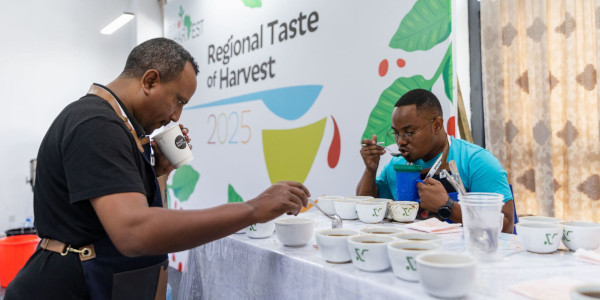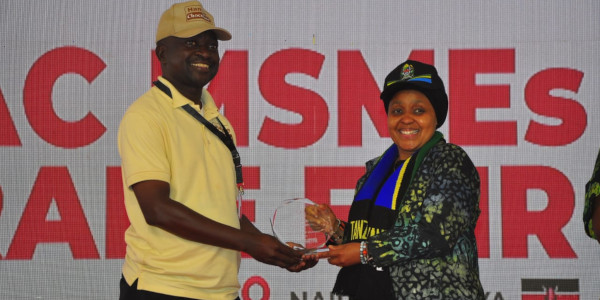TANZANIA
The EU-EAC MARKUP II is a regional development initiative that provides support to small and medium-sized enterprises (SMEs) in the East African Community (EAC). It is part of the Africa Trade Competitiveness and Market Access Programme, a broader pan-African programme with a primary focus on some export-oriented priority value chainsIt aims to support increased exports of agribusiness and horticultural products. The agricultural sector in Tanzania is a vital contributor to economic growth, constituting nearly 30% of the GDP as of 2021 and employing approximately 65% of the workforce. However, the sector’s full export potential, exemplifi ed by the avocado industry, remains largely untapped. In the leather sector, Tanzania second largest livestock production in Africa predominantly exports raw materials and low-value-added products. To address these challenges, the program focuses on enhancing value addition and market access in key sectors like coffee, leather, packaging, avocado, and spices, aiming to contribute significantly to the country’s economic transformation and improved livelihoods. Jointly designed by the European Union (EU), the EAC Secretariat, relevant ministries, government departments and agencies from the EAC partner states, business support organizations and East Africa Business Council (EABC), MARKUP II is implemented by the International Trade Centre (ITC) under the auspices of the European Union.
-
Duration (Four Years)
2023- 2027
-
FunderEuropean Union (EU)
-
Main Beneficiaries
SMEs, public institutions “Ministries, Departments and Agencies” as well as private institutions operating in selected value chains of packaging, coffee, leather, spices and avocado in Tanzania.
-
Objective
Contribute to economic development in the East African Community through increased sustainable intra-EAC /African and EU-EAC trade. Specifically, it intends to:
- Enhance market access for selected value chains
- Enhance export Competitiveness for SMEs in selected value chains
-
AREA OF COVERAGE
The programme intervention covers all regions of Tanzania mainland and Zanzibar where SMEs are operating within the selected value chains
MARKUP II INTERVENTION
Selected Key Activities:
-
At the policy level, MARKUP II focuses on reducing market access barriers; among others, the program supports:
- Identification and advocacy for the removal of NTMs within the selected value chains.
- Strengthening quality compliance and standards through mutual recognition, access to conformity testing and certification, and improving the approach to harmonization of technical regulations and SPS measures, including pesticide registration.
- Facilitation of the value chain revision mechanism to ensure proper technical supervision and coordination of sector players, as well as building strategic regional vision on value chains’ future business trends.
-
At the enterprise level, the program supports SMES in Value addition and diversification, as well as building SMEs capacities in seizing opportunities for business and export, through support on:
- Marketing and certifications such as compliance with Voluntary Sustainability Standards (VSS), Geographical Indications, traceability, branding and packaging, and general marketing.
- technology transfer and processing, such as postharvest management and processing, resource efficiency/sustainability, and SME digitalization.
- Enhancing business and export skills of sector SME, including youth and woman entrepreneurs.
- Access to finance of sector SMEs
- Connecting sector SMEs to markets, including through intra-regional e-commerce, online auctions, backward linkages and export consortia.
- Facilitate trade and investment promotion such as B2B, regional business deals, and promote trade/ investment with the EU working with EU Business Support Organizations (BSOs).
Upcoming Events in Tanzania:
5 value chains targeted in Tanzania
For more information, please contact:
National Programme Coordinator MARKUP II
International Trade Centre (ITC)
United Republic of Tanzania





